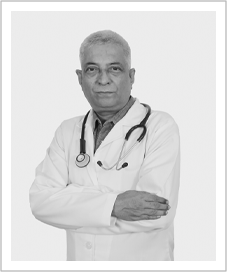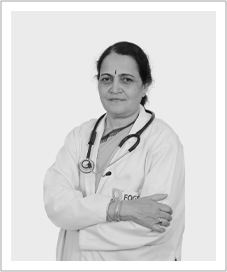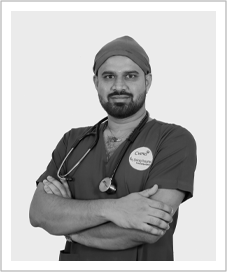Fistula Experts in Bangalore
Dr. Rajasekhar & his team of expert physicians have 38 years of experience in treating Fistula.
Contact Chirag Global Hospitals for the Best Doctor for Fistula in Bangalore, India.
What is Fistula ?
Anal fistulas are the result of an infection that starts in an anal gland. The infection results in an abscess which is a collection of pus inside. When it opens inside the anal canal, it is called the sinus. When it opens outside and pus starts coming out, it is called Fistula.
In simpler terms, Fistula is a tract that opens from the rectum creating a hole in the walls of the bottoms. The tract exposes the faecal matter to escape through it. As these tracts do not have sphincters to control the flow, pus & other faecal matter flows without control of the patient. This creates a difficult & awkward situation for the patient in daily life. Get treated for your fistulas by experts only for effective treatment.
Symptoms of Fistula
- Skin irritation around the anus
- Constant throbbing pain that may be worse when you sit down & move around
- Smelly discharge from near the anus
- Passing pus or blood when you poop
- Swelling and redness around your anus and a high temperature (fever) if you also have an abscess
- Difficulty controlling bowel movements (bowel incontinence) in some cases
- The end of the fistula might be visible as a hole in the skin near your anus, although this may be difficult for you to see yourself.
Causes of Fistula
Most anal fistulas develop after an anal abscess. You can get one if the abscess does not heal properly after the pus has drained away.
Infection of anal glands, leading to formation of sinus, which when not treated leads to formation of fistula. So proper diagnosis and management is essential in early stages.
Fistulas can also be caused due to the following reasons in few rare cases:
- Crohn’s Disease: A long-term condition in which the digestive system becomes inflamed
- Diverticulitis: Infection of the small pouches that can stick out of the side of the large intestine (colon)
- Hidradenitis Suppurativa: A long-term skin condition that causes abscesses and scarring
- Infection with tuberculosis (TB) or HIV
- A complication due to a surgery near the anus
Complications of Fistula
Treatment for Fistula
- Fistula-in-Ano Surgery:
Surgery is almost always necessary to cure an anal fistula. The surgery is performed by a colon and rectal surgeon. The goal of the surgery is a balance between getting rid of the fistula while protecting the anal sphincter muscles, which could cause incontinence if damaged.
Fistulas in which there is no or little sphincter muscle involved are treated with a fistulotomy. In this procedure, the skin and muscle over the tunnel are cut open to convert it from a tunnel to an open groove. This allows the fistula tract to heal from the bottom up. - Fistulotomy:
A fistulotomy, or An advancement flap procedure (the fistula is covered with a flap, or piece of tissue, taken from the rectum, like a trap door), or A lift procedure (the skin above the fistula is opened up, the sphincter muscles are spread, and the fistula is tied off). Your colorectal surgeon will discuss all of your options before the surgery. - Fistulectomy:
Fistulectomy is a technique of treating Fistula by excising the entire tract, thereby eliminating the possibilities of any remnant secondary tracts in the procedure. - Ksharasutra & Ksharakarma:
These are the most ancient, effective & advanced ayurvedic techniques used to treat simple & complex fistulas. Talk to our experts at Chirag Global Hospitals to understand more about the most effective treatment for fistulas.
Risk of Fistula
- Previous history of anal abscess or fistula
- Crohn disease
- Ulcerative colitis
- Trauma
- Previous surgery or radiation therapy
- Cancer
- Certain infections, including HIV and tuberculosis
Tips to Prevent and Treat Piles
Our Team

MBBS, MS,
Founder & Chief Proctologist

MBBS, MS, FSGE
Surgical Gastroenterology
& Colorectal Surgeon

MBBS, MS
Senior Surgeon

MBBS, MS
Senior Gynaecologist

BAMS, MS
Proctologist

BAMS, MD
Proctologist

BAMS,MS
Proctologist

MBBS, MD
Anaesthesiologist
